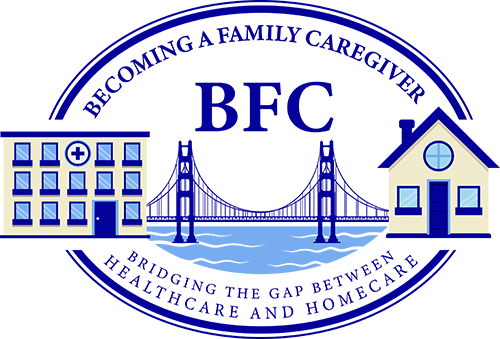Conduct Disorders Primarily Affecting Children
Conduct Disorder
Behaviors
Conduct disorders that primarily affect children fall under category one. One of those conditions is actually called Conduct Disorders. Children who demonstrate behaviors like the following that diagnosis.
- act aggressively toward other people or animals (i.e., bullying, threatening behaviors, violence, using weapons, animal cruelty, forced sexual acts, etc.)
- willfully destroy or damage property (i.e., set fires, vandalisms, destructive behavior during arguments, etc.)
- steal and lie (i.e., forge signatures, shoplift, cheat, steal from family and friends, sneak out, etc.)
- violate other serious or important rules such as skipping school before age 13, running away from home, using or selling drugs, promiscuity, gambling, etc.
Conduct Disorders usually begin to show up before the age of 16 and develop antisocial personality disorders if they go untreated. Children with conduct disorders frequently behave in extremely troubling, socially unacceptable, and often illegal ways. However, they feel justified in their actions and show little empathy for their victims.
Treatment
Treatment for conduct disorder depends on many factors, including the child’s age and the severity of symptoms. Learning how to express and control anger in more appropriate ways through psychotherapy is one of the more common treatment measures. Cognitive-behavioral therapy teaches the child how to improve problem-solving skills, anger management, moral reasoning skills, and impulse control is another method used with psychotherapy or alone.
Not only does the child need to participate in therapy, but the family needs help as well to learn how to support the child in learning new ways to interact with others. Family and Parent Management Training are two specialized therapy techniques that teach parents and siblings new skills to help improve family interactions and communications.
When obtaining help early, the chance that the child’s behaviors can improve and future negative outcomes avoided improves. However, without that help, the child is at risk for future incarceration, drug use, mood disorders, school dropouts, pregnancy, dysfunctional relationships, acquiring sexually transmitted diseases, committing suicide, acts of violence, school shootings or other violence, and more.
The number of symptoms exhibited and the degree of injury or damage sustained determine whether it is a mild, moderate, or severe conduct disorder.
Types of Therapies
Treatment for conduct disorder usually consists of a combination of Therapies.
- Psychotherapy aims to help the child learn to express and control anger in more appropriate ways.
- Cognitive-behavioral therapy aims to reshape the child’s thinking (cognition) to improve problem-solving, anger management, moral reasoning, and impulse control skills.
- Family therapy is structured to help improve family interactions and communication among family members.
- Parent management training (PMT), a specialized therapy technique, teaches parents ways to positively alter their child’s behavior in the home.
- Medication use is limited to treating co-existing conditions designed to provide symptom relief.
Oppositional Defiant Disorder
Behaviors
Children with Oppositional Defiant Disorder (ODD) often start fights, argue with authority figures, annoy or irritate those around them and take vindictive actions against those they perceive “did them wrong.” If confronted with a mistake or accused of violating a rule, they would never admit guilt or accept blame. Instead, they would justify their behavior and deflect accountability elsewhere.
Young people with ODD quickly lose their tempers and act “touchy” most of the time, making it difficult to approach any potentially controversial subject. Easily annoyed by others, they are angry, resentful, and argumentative. Ask them to do something they don’t want to do, and they’re likely to say “no” out of defiance. Demand that they comply with a rule or stop what they’re doing, and their actions become more defiant in response. Their behavior rises above challenging or being strong-willed to open defiance and hostility.
Parents may see signs of this type of behavior beginning as early as pre-school, but usually, if a child has ODD, it’s apparent by the early teen years. The frequent disruption of family, social activities, classroom, and other events alert everyone associated with the child that unless effective intervention measures occur, the child’s future is bleak. The severity of the condition is measured by how widespread the scope of disturbances occurs. Mild ODD behaviors occur primarily in one location, such as the home or school. Whereas moderate occurs in two locations (i.e., home and school) and severe occurs in three or more settings (i.e., home, school, friends, public buildings, etc.).
Treatment
Treatment for ODD primarily focuses on using family-based interventions with psychotherapy and social skills training as secondary interventions. Here’s how the various therapies provide a well-rounded approach to helping the child learn to function successfully in society.
- Individual and Family Therapy – Learn how to control anger and express feelings in healthy ways. With the family, learn how to improve communication and work together to resolve family issues.
- Parent Training – Help parents learn to be consistent and positive in their approach to dealing with the child. They must learn to give clear instructions and follow through with appropriate consequences when needed. Furthermore, they need to recognize and praise the child’s positive actions and consistently promote desired behaviors. Learning to do this in the face of opposition is difficult and very stressful for parents and the other siblings and requires a lot of patience and practice.
- Parent-Child Interaction Therapy – The therapist uses an “ear bug” to listen in of child/parent conversation and coaches the parent on how to reinforce positive behavior.
- Psychotherapy – Therapy teaches the child how to identify and change destructive thought patterns that lead to behavior problems. Collaborative problem-solving skills bring the family together to create solutions to problems as a team rather than work against one another.
- Social Skills Training – Training aimed to teach the child how to establish friendships and interact positively and effectively with peers in social situations.

